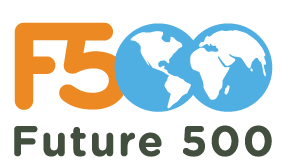CERAWeek 2024
Gleeson Ryan, Analyst at Future 500
Published April, 2024
CERAWeek 2024
In March, nearly 10,000 global leaders flocked to Houston, TX, to address the future of energy. This year’s CERAWeek focused on a road map for a multidimensional transition. The Future 500 team joined to soak up information from across the energy landscape and lead two panels. Below, we outline a few high-level insights that emerged from each panel.
Panel 1: How are Major Donors and Foundations Tackling Energy Transition Challenges?
Who:
Brendon Steele, Future 500 VP(moderator)
Lourdes Rodríguez, CEO, David Rockefeller Fund
Doug Lewin, Founder, Stoic Energy Consulting
John Arnold, Founder of John Arnold Foundation
What: This thoughtful discussion explored the perspectives of climate funders on their grantmaking strategies and industrial decarbonization pathways for the energy sector. It identified points of contrast, including industry skepticism, but also highlighted potential common ground.
Key takeaways:
1. Climate issues are no longer partisan, and diverse perspectives are required. Panelists emphasize that pluralism and multi-disciplinary thought will lead to the most effective solutions. More forums for convening industry and community leaders are needed. Additionally, all solutions are needed, including regulations, incentives, economics, and targeted climate philanthropy.
2. Bridging the gap requires empathy and trust. Finding solutions requires listening and committing to meaningful trust-building efforts. Strategies for building trust include understanding your blind spots and approaching making change from a place of empathy rather than opposition.
Panel 2: How do we build trust between NGOs and the Energy Industry to enable the energy transition?
Who:
Erik Wohlgemuth, Future 500 CEO (moderator)
Lori Bird, U.S. Energy and Polsky Chair for Renewable Energy, World Resources Institute
Holly Cannon, Executive Vice President & General Counsel, The Conservation Fund (TCF)
What: This conversation explored how NGO advocates may view the energy sector skeptically and how to build the trust necessary to accelerate the energy transition.
Key takeaways:
1. Improve projects, don’t stop them. While our current regulatory system is designed to prevent harmful projects, it doesn’t focus on enabling good ones. It’s important to evaluate projects holistically and be intellectually honest about the impacts of both oil & gas and renewable energy projects.
2. Building trust is critical in order to meet the urgent timeline of addressing climate change. Both industry and NGOs can work to rebuild trust by being realistic about endorsing a broad range of solutions and focusing on worker transition.
Overall, the themes of empathy, trust-building, and collaboration across diverse stakeholder groups were shared repeatedly. CERAWeek was an illuminating, at times both inspiring and sobering, but a highly motivating week for us. Thanks to our inspiring expert panelist, S&P Global, and the CERA team for being wonderful hosts and curating a compelling slate of speakers and topics.
Future 500 is a non-profit consultancy that builds trust between companies, advocates, investors, and philanthropists to advance business as a force for good. We specialize in stakeholder engagement, sustainability strategy, and responsible communication. From stakeholder mapping to materiality assessments, partnership development to activist engagement, target setting to CSR reporting strategy, we empower our partners with the skills and relationships needed to systemically tackle today's most pressing environmental, social, and governance (ESG) challenges.
Want to learn more? Reach out any time.
More from our team:











